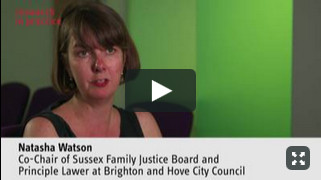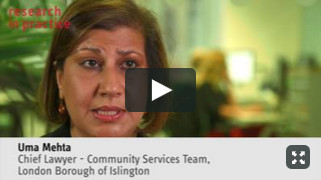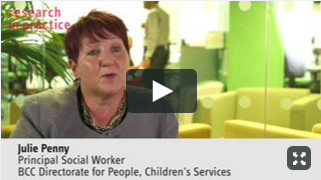 Contents
Contents
- When to call a legal planning meeting
- Who should attend
- Scope of the meeting
- letter of issue and letter before proceedings
- video – practitioners discuss the practicalities of legal planning meetings
- local practice examples
What you need to know
If work with the family cannot keep a child safe, a legal planning meeting should be called. This is sometimes called a legal strategy meeting or a legal gateway meeting. The purpose of this meeting is to obtain advice as to whether the ‘threshold criteria’ for a care order under section 31 Children Act 1989 have been met.
The legal planning meeting is usually attended by the child’s social worker, manager and a legal adviser.
The meeting also considers whether there is sufficient evidence for the proposed plan (whether that is pre-proceedings or care proceedings), such as a satisfactorily completed assessments, a chronology, genograms, plans considered or tried and other reports. This should include:
- current information from the foster carer (if the child is looked after)
- whether any specialist assessments are needed, including any related to parents’ capacity / capability.
Notes should be kept of the process whereby the decision was reached.
What happens after a meeting
If the local authority reaches a decision that the threshold has been met, there are three options:
- to continue with a support programme, revised to take account of concerns identified
- to begin a formal pre-proceedings process
- to apply to court immediately, depending on the urgency of the situation.
The outcome of the meeting may be that matters are so urgent that an application will be made immediately to court, in which case a letter of issue will be sent to the parents. In an emergency, the local authority may seek an emergency protection order.
In other circumstances, an application is likely to be made because the local authority believes that the threshold for obtaining a care/supervision order has been met, but the local authority decides one final attempt should be made to work with the family. In this situation, the local authority will send the parent(s) a letter before proceedings. If a decision is made at a legal planning meeting to send a letter before proceedings, the formal pre-proceedings stage begins.
Learning resources
 The importance of legal planning meetings – Natasha Watson, Brighton.
The importance of legal planning meetings – Natasha Watson, Brighton.
Running time: 02:28
Download video direct from Vimeo
Also viewable online via Adobe Connect
(having trouble playing our videos?)
Video Resources – running a legal planning meeting
Natasha Watson, Co-Chair of Sussex Family Justice Board and Principal Lawyer at Brighton and Hove City Council, discusses the importance of legal planning meetings
 Legal Planning Meeting – Uma Mehta, Islington.
Legal Planning Meeting – Uma Mehta, Islington.
Running time: 02:40
Download video direct from Vimeo
Also viewable online via Adobe Connect
(having trouble playing our videos?)
 Legal Planning Meeting – Julie Penny, BCC Directorate.
Legal Planning Meeting – Julie Penny, BCC Directorate.
Running time: 05:05
Download video direct from Vimeo
Also viewable online via Adobe Connect
(having trouble playing our videos?)
Local Practice Examples
Cornwall Council developed a protocol for conducting legal planning meetings, which includes a useful template for meetings and a checklist template.






